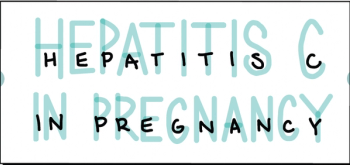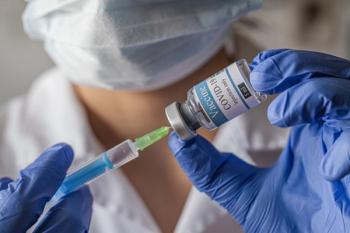
Findings from a study indicated that non-Hispanic American Indian and Alaskan Native patients with breast cancer were more likely to undergo a mastectomy compared with non-Hispanic White patients.

Findings from a study indicated that non-Hispanic American Indian and Alaskan Native patients with breast cancer were more likely to undergo a mastectomy compared with non-Hispanic White patients.

Due to uterine fibroids being a potential cause of infertility, treatment options like myomectomy should be discussed individually with the patient, according to an article published in Diagnostics that evaluated the relationship.

SMFM Consult Series #56: Hepatitis C in pregnancy: updated screening, treatment, and management guidelines.

One year after the close of the Increasing Access to Contraception (IAC) Learning Community, participants had sustained their efforts in support of at least 1 goal: to improve women’s access to the full range of contraceptive options.

As the 2-year mark since the start of the COVID-19 pandemic creeps in, one can’t help take stock of what the pandemic has shone a light on.

Download a visual summary of SMFM Consult Series #56: Hepatitis C in pregnancy: updated guidelines

Margo B. Minissian, PhD, shares key updates from the newest recommendations for primary prevention of cardiovascular disease in women from the ACC and AHA. Minissian is executive director, Geri & Richard Brawerman Nursing Institute at Cedars-Sinai Medical Center and the Simms/ Mann Endowed Chair of Nursing Education, Innovation and Research at Cedars-Sinai Medical Center.

Results of a cross-sectional study detail characteristics among women with polycystic ovary syndrome (PCOS) who develop type 2 diabetes.

Put your knowledge to the test in honor of Prematurity Awareness Month.

We caught up with Risa Kagan, MD, at the North American Menopause Society's 2021 Annual Meeting to hear about her role on the Scientific Planning Committee and this year's takeaways.

“Today, many of these cases are done as open surgery, including approximately 60% of all hysterectomies performed globally, despite the clear benefits of minimally invasive surgery, which includes fewer complications, a shorter hospital stay, and a faster return to normal activities,” Peron told Contemporary OB/GYN®.

What to watch for this week on Contemporary OB/GYN®

Disparities across the globe continue to surface as we approach year 2 of the COVID-19 pandemic, especially in health care. As one considers its implications, a research team from the American Cancer Society investigated its potential impact on early cancer detection.

The reality is that traditional laparoscopic surgery provides excellent outcomes, great surgical exposure, and the flexibility to tackle almost any clinical situation. As such it is a high bar to overcome—vNOTES is essentially single port vaginal surgery.

It's been a busy week for the Contemporary OB/GYN® team. Here's what you missed.

Optimization of care represents a priority and requires an understanding of etiology to effectively diagnose and treat.

As always, this month’s edition of Contemporary OB/GYN® features multiple peer-reviewed articles that offer in-depth guidance and analyses of key topics in ob/gyn. Here are the highlights of this special technology-centered issue.

Contemporary OB/GYN® held a panel discussion in September with 4 renowned minimally invasive gynecologic surgeons (MIGS) who discussed vaginal natural orifice transluminal endoscopic surgery (vNOTES).

In this episode, Michael Krychman, MD, sat down with Alyssa Dweck, MD, gynecologist, and Bonafide medical advisor to catch up at this year's North American Menopause Society (NAMS) Annual Meeting.

Prenatal exposure to inorganic arsenic and coexposure to inorganic arsenic and cadmium was found to increase risk of atopic dermatitis by up to 2.42-fold in young Taiwanese children.

An abstract presented at CHEST 2021 showed that women who entered pregnancy with sleep-disordered breathing were associated with higher levels of insulin resistance and potential risk of gestational diabetes.

Socioeconomic and ethnic inequalities among women in England were responsible for adverse pregnancy outcomes such as stillbirths, preterm births, and births with fetal growth restriction, with the largest inequalities among Black and South Asian women.

More medical and SDOH (social determinants of health) data is available now than ever before to clinicians, health care organizations, and payors. Using this data can lead to better outcomes.

Genomic testing has grown in importance as the number of targeted anticancer therapies rises. Early genomic testing can help to guide treatment choices.

The next step in the approval process is the formal acceptance of the recommendation by CDC Director Rochelle P. Walensky, MD, MPH.

Paul Lawrence Baron, MD, discussed best practices for determining a patient’s risk of developing breast cancer, the significance of targeting HER2 in patients with early-stage and metastatic disease, and remaining questions with radiation therapy in the field.

A recent study indicates that when born prematurely, twins may have some gains over singleton babies.

Standard chemotherapy has historically been the mainstay of treatment for patients with diagnoses of early-stage TNBC, but there remains an unmet need to identify novel therapies that improve outcomes and, equally important, to discern which patients may benefit from a given treatment.

Here's what's coming up this week on Contemporary OB/GYN®

The clinical-stage immunotherapy company PDS Biotechnology Corporation has announced the temporary suspension of recruitment to the National Cancer Institute–led phase 2 trial, which is evaluating a novel triplet combination comprised of PDS0101 and 2 immunomodulating agents in patients with advanced human papillomavirus cancers.